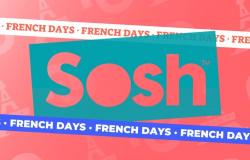
Belgians pay too much for their telecoms subscriptions, we’re not telling you anything. But things tend to change for certain segments of the market, and that’s good news. More good news could even arrive in the months to come. This is what emerges from the latest BIPT report, which analyzed the evolution of the telecoms offer in Belgium between 2019 and 2024. A study which looks at both internet and mobile offers, as well as the packs that Belgians remain very fond of.
We start with the good news, starting with the stabilization of prices for the internet offer alone. “Standalone internet prices are generally stable or falling, partly due to the presence of secondary brands such as Mobile Vikings, Scarlet and Hey! Belgian customers therefore have a wide choice, with at least seven brands. A similar dynamic can be observed when the internet is combined with a mobile subscription. Secondary brands also rely on the grouping of these two services”, we read in this study which had already been carried out in 2022.
It is on the pack side that things remain to be done. “Packs without a mobile component mainly present more expensive solutions than in 2019. While at least 7 brands are available for standalone internet customers, in this segment, there are at most 3 or 4. This Lack of competition can be attributed in part to the fact that secondary brands, with the exception of Scarlet, are not active in this segment. This negative development affects 20 to 30% of Belgian customers.”
Prices of internet-television-mobile packs on the rise between 2019 and 2024
As for the trio packs (internet – TV – mobile), the constant varies from one operator to another. “On the one hand, consumers with low-speed needs had cheaper solutions in 2019, mainly thanks to Scarlet. However, the price has increased significantly for packs with greater needs in terms of speed and TV channels. These offers represent the largest share of the market (40-45%).“
The overall results are therefore quite mixed, according to the BIPT, which points to an element of the market which harms consumers. “For example, Orange initially positioned itself as a dynamic challenger in the market, encouraging competitors to increase their speeds or focus on secondary brands with more attractive prices. However, at the end of 2021, Orange’s strategy changed with the acquisition of VOO. Since then, the operator has played less of a price-breaker role and its prices have gradually evolved towards those of established brands such as Proximus, Telenet and VOO.”
More than ever, the arrival of a new operator seems to be able to shake things up. “The expected arrival of Digi Belgium is a development that could be beneficial for consumers. This could result in a revival of competitive dynamics in the fixed and convergent market”, concludes the study.





